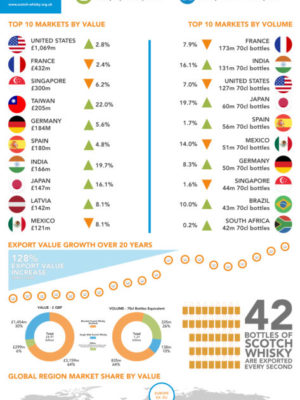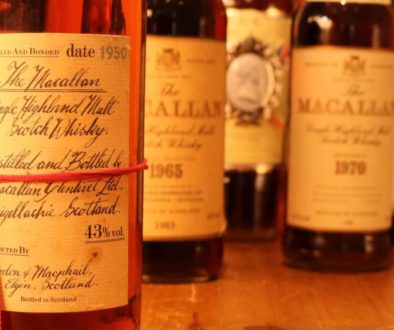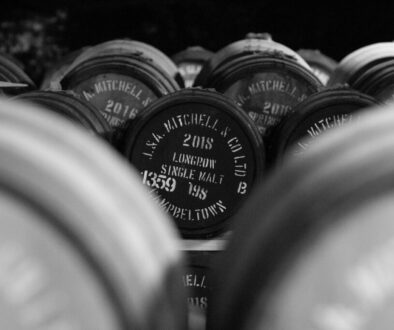You will be excused for not noticing the undramatic end of the transition period of the UK’s exit from the EU at the end of 2020. After all, most of the UK had other things to worry about, namely working out what tier they were in, and what that meant, and since then dealing with the third national lockdown.
The fact remains that Brexit is done, and a deal was agreed with the EU. There is now technically a free trade agreement with the EU, which as the EU is the largest single export market for Scotch whisky, accounting for 30% of global exports, is a good thing for the industry.
Here’s what the government has to say on the matter:
This agreement establishes zero tariffs or quotas on trade between the UK and the EU, where goods meet the relevant rules of origin. Chapter 2 provides for full bilateral cumulation between the UK and EU, allowing EU inputs and processing to be counted as UK input in UK products exported to the EU and vice versa. The rules are also supported by predictable and low-cost administrative arrangements for proving origin. Source: gov.uk

That being said, there are still local complications and now we are out of the EU you will have to check VAT and import/export rules each time you send or receive alcohol.
Sweden for example will only accept alcohol imports from within the EU. That means that whisky cannot be shipped directly from the UK to Sweden, however companies with bases in Europe can get around this by shipping via an EU country. This will impact delivery times and costs. While it may seem complicated these are the types of things whisky collectors are now going to have to think about when shipping or receiving their products. Which is why, as we mention below, the best thing to do is to check the specific rules for the country you are sending to or receiving from before you send.
- Source: https://www.scotch-whisky.org.uk/media/1706/2019-exports-long-infographic.jpg
Brexit beyond the EU
Brexit also impacts the UK’s relationship with non-EU countries and as well as the EU Brexit negotiations the UK has also had to establish direct trade agreements and spirit protection agreements with the other countries of the world.
The USA is the second largest single market for Scotch Whisky – worth over £1,000million to the industry. An agreement for protection of spirit classifications was agreed back in January 2019, but the 25% Trump tax is still currently in place. However the tariff is in response to a 2019 WTO ruling that the US was entitled to impose tariffs of $7.5 billion (£5.8bn) a year on European goods, as Scotch Whisky takes up such a huge portion of UK exports, the industry is currently footing 62% of the tariff bill, however as it is no longer technically a European good the tariff may change in response to Brexit.
Indeed there were positive comments in December 2020 that indicated that the UK is working to de-escalate the tit-for-tat tariff situation that is causing the pressure on Scottish products and there are talks of the introduction of a mini-deal with the US to remove the tariffs. We look forward to hopefully positive future developments around this.
Elsewhere, the UK has started securing numerous bilateral trade agreements with other countries that mirror the protections and tariffs that were in place when we were part of the UK (like with Mexico – which is a top 10 export market), and in some places is even looking to improve on them (such as with Canada – which is the 15th largest export market and grew by 5.7% in 2019 and with Vietnam – which is phasing out its 45% import tariff on Scotch)

So what does Brexit mean for you & selling or buying whisky?
At the moment (January 2021) it means you need to check the rules for the specific country you are sending from or to as it may have changed and may change again in the future.
Currently VAT implications (or the equivalent in the country of import/export) are now going to vary within Europe. So while a buyer from an EU member state will not have to pay UK VAT on a purchase, they will have to pay their equivalent home VAT on import.
If you are sending goods from the UK, the UK Government website has a handy tool for checking the rules for where you are sending to.
If you are receiving goods from elsewhere the sender should check their local export rules and you should check for any import taxes due on goods received.
You should also be aware that shipments into and out of the UK may be delayed while all parties get used to the new administration – and longer shipping routes for cases such as Sweden.
If you have any questions, or if you are looking for help buying or selling your rare or collectable whisky in a post Brexit world, then please get in touch.




